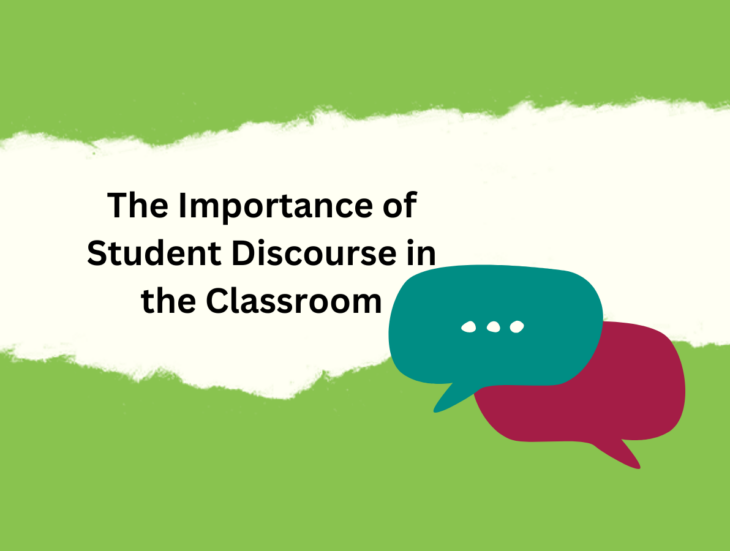
Student discourse, or the act of students engaging in discussions and conversations with their peers and teachers, is a crucial aspect of the learning process. When students are actively participating in discussions and sharing their thoughts and ideas, they are able to deepen their understanding of the subject matter and develop important critical thinking and communication skills.
There are many strategies that teachers can use to encourage more student discourse in the classroom. Some of these strategies, as outlined in the Edutopia article "9 Strategies for Getting More Students to Talk," include:
- Providing opportunities for small group discussions: Small group discussions allow students to have more in-depth conversations with their peers and practice their communication skills.
- Asking open-ended questions: Open-ended questions encourage students to think critically and share their own thoughts and ideas, rather than simply recalling information.
- Using think-pair-share: This strategy allows students to process and reflect on the material individually before discussing it with a partner and then sharing with the larger group.
- Using debate and argumentation: Debate and argumentation provide opportunities for students to present and defend their viewpoints, while also listening and considering the perspectives of others.
- Providing time for reflection: Giving students time to reflect on the material and their own thoughts and ideas can lead to more meaningful and thoughtful discussions.
In addition to the benefits mentioned above, student discourse has been shown to have a positive impact on student achievement. According to the Alexandria City Public Schools website, "Research has shown that classrooms with high levels of student discourse outperform those with low levels of student discourse."
Furthermore, student discourse helps to create a more inclusive and equitable classroom environment. By giving all students the opportunity to share their thoughts and ideas, teachers can help to create a sense of community and ensure that all voices are heard.
The Transformative Classrooms Team at GWAEA has created many resources to help support teachers in the implementation of student discourse in the classroom:
- Accountable Talk Strategy Sheet - this strategy sheet outlines ways to ensure students are accountable and participating in small group discussions. A key feature is using a gradual release of responsibility to model accountable talk, provide students necessary scaffolds as they are getting started, and introducing extension opportunities for those who might need it.
- Accountable Talk Bookmark - printable and customizable bookmark with accountable talk prompts on it to support student accountable talk.
Overall, the importance of student discourse in the classroom cannot be overstated. By providing opportunities for students to engage in meaningful discussions and share their thoughts and ideas, teachers can not only enhance their understanding of the material, but also help them develop critical thinking and communication skills that will serve them well throughout their academic and professional careers.
